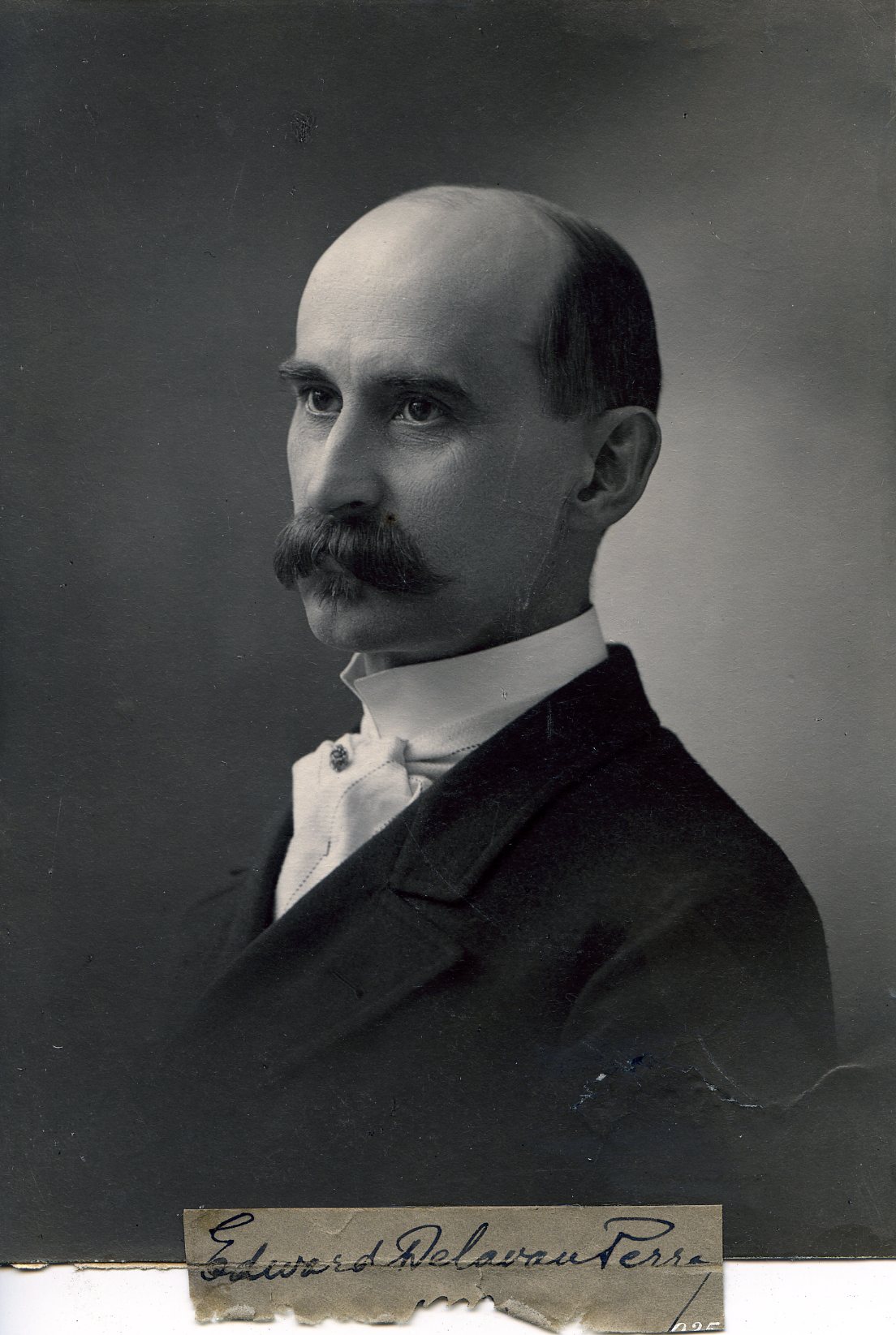Professor
Centurion, 1893–1938
Born 20 December 1854 in Troy, New York
Died 28 March 1938 in New York (Manhattan), New York
Buried Albany Rural Cemetery , Menands, New York
, Menands, New York
Proposed by Brander Matthews and Augustus C. Merriam
Elected 1 April 1893 at age thirty-eight
Century Memorial
Like all great scholars Edward Delavan Perry did not appear learned; for his learning was not something external, to be worn like a hood or a badge, but internal, an essential part of his character and being. As a colleague said of him: “He really knew Greek and could write it and play with it both in prose and in verse.” He was above all else a teacher, an extraordinarily fine interpreter of the classics precisely because his learning was himself and in his friendly way he shared all he possessed of exact scholarship and imaginative understanding with his pupils. He set down relatively little of his great knowledge in books. It was by direct contact, by word of mouth and the example of his fine courtesy and great learning that he assumed without effort and occupied securely for so many decades his commanding position in the Columbia faculty.
It was in the southwest corner of the dining-room that Centurions best remember his lean and friendly face and that his wit was oftenest set free. To mention Perry’s name among his friends is to start a battle of quotations. He was a master of spontaneous rhyming. If the form was that of wit the feeling leaned more to humor, as became his warm and modest nature. Yet it was verbal felicity that made his speech memorable. “He had the most delicate sense of language that I have ever known,” wrote a colleague. Whether turned to dialect, or epigram, or repartee, or light and varied verse, “his fancy was quick and fertile, his wit always ready and kindly.” It was as if his complete mastery of the Greek language in addition to his own had given his tongue a special skill to utter his flying thoughts in whatever form befitted the content and the occasion. It is unfair to quote such instantaneous products of the tongue years after in cold print. Perhaps one will not seem amiss. Forty years ago when René Doumic was visiting Columbia University, Perry turned to Dr. Butler and remarked:
M. René Doumic-a
’E cannot-a speak-a
Any of ze anglais.
So I say to ’eem-a,
Je vous estime-a—
Ve get on vera well
Zat a-way.
On another occasion, an early suffragette meeting, he tossed a pellet of paper across the aisle to a fellow Centurion, which contained the following lines:
The wise and god-like Pericles,
As quoted by Thucydides,
Gave utterance to thoughts like these:
“That woman is of best renown
Of whom there’s least said in the town,
Whether to praise or run her down.”
“I never can agree to that,”
Cried Mrs. Carrie Chapman Catt.
No one loved the companionship of friends more than did Perry or gave more lavishly of wisdom, sympathy, and fun. It is for “the blitheness of his spirit” that his friends of the Century would remember him.
Geoffrey Parsons
1938 Century Memorials

